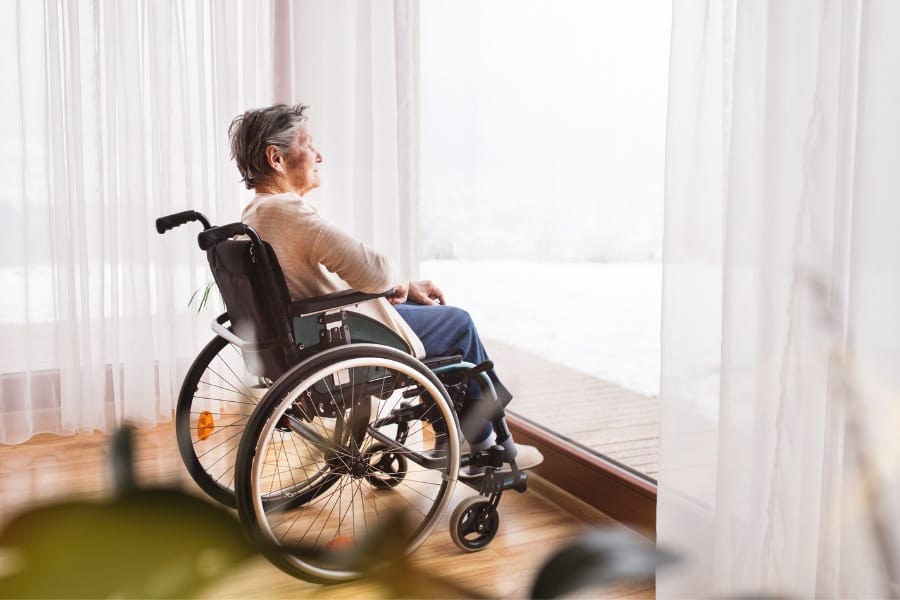10 Tips to Prevent Parkinson’s Disease
How to Prevent Parkinson’s Disease
Facing the possibility of Parkinson’s disease can be a daunting experience for anyone. This progressive neurological disorder, which affects movement, balance, and coordination, often brings anxiety not only to potential patients but also to their loved ones.
However, there’s reason for hope.
While there’s no guaranteed way to prevent Parkinson’s, emerging research suggests that certain lifestyle choices may help reduce the risk of developing this condition.
This guide delves into evidence-based strategies for Parkinson’s prevention, addressing common concerns and offering practical advice.
Whether you’re worried about your own brain health or supporting someone at risk, you’ll find valuable insights and actionable steps. By exploring these preventative measures, readers can empower themselves with knowledge and take proactive steps towards a healthier future.
Key Takeaways
- Lifestyle factors such as exercise and diet can play a role in preventing Parkinson’s disease.
- Avoiding exposure to environmental toxins may also reduce the risk of developing Parkinson’s disease.
- While there is no cure for Parkinson’s disease, taking preventative measures can help delay the onset of the disease.
Quick Overview of Parkinson’s Disease
Parkinson’s disease (PD) results from the loss of dopamine-producing neurons in the brain.
This neurodegeneration leads to the characteristic motor symptoms of PD, including tremors, rigidity, and bradykinesia. While the exact cause remains unknown, a combination of genetic and environmental factors likely contributes to its development.
Now, let’s look at 10 tips and considerations when it comes to preventing Parkinson’s Disease.
1. The Role of Genetics in Parkinson’s Disease Risk
 Genetics plays a complex role in Parkinson’s susceptibility.
Genetics plays a complex role in Parkinson’s susceptibility.
While most cases are sporadic, about 15% of individuals with PD have a family history of the condition. Specific gene mutations, such as those in the LRRK2 or PRKN genes, can increase the risk of developing Parkinson’s.
However, having a genetic predisposition doesn’t guarantee you’ll develop the disease. Environmental factors and lifestyle choices can significantly influence whether these genes are expressed.
2. Be Aware of Environmental Factors and Toxins
Environmental toxins contribute to Parkinson’s disease development.
Studies have found that individuals who work in agriculture or live in rural areas where these chemicals are widely used are at a higher risk of developing Parkinson’s disease.
Other environmental factors that may contribute to Parkinson’s disease include exposure to heavy metals, such as lead and mercury, and air pollution.
While the exact mechanisms by which these toxins contribute to the development of Parkinson’s disease are still unclear, it is believed that they may damage the neurons in the brain that produce dopamine, a neurotransmitter that is crucial for movement.
To protect yourself, it’s crucial to:
- Minimize exposure to pesticides and herbicides
- Use proper protective equipment when working with chemicals
- Choose organic produce when possible
- Filter your drinking water to remove potential contaminants
Remember, “an ounce of prevention is worth a pound of cure” when it comes to environmental risks.
Other tips that may help in your daily life include:
- Use natural cleaning products
- Choose non-toxic personal care items
- Avoid plastic food containers and water bottles containing BPA
- Properly dispose of electronic waste
- Be cautious when using pesticides or herbicides
Be aware of potential sources of toxins in your environment and take steps to minimize exposure.
3. Early Warning Signs: Recognizing Parkinson’s Symptoms
Early intervention slows disease progression in Parkinson’s. Recognizing the early signs can lead to prompt diagnosis and treatment.
Some subtle early symptoms include:
- A slight tremor in one hand or finger
- Smaller handwriting (micrographia)
- Loss of smell
- Sleep disturbances
- Constipation
- Changes in voice or facial expression
If you notice these symptoms, don’t panic, but do consult a neurologist for a thorough evaluation.
Important note: Click here for common Parkinson’s Disease symptoms.
4. The Power of Exercise
 Lacing up those sneakers could be your brain’s best defense against Parkinson’s.
Lacing up those sneakers could be your brain’s best defense against Parkinson’s.
It’s not just about staying fit – research shows that regular exercise acts like a shield for the precious dopamine-producing neurons in your brain. Plus, it gives your mind the flexibility it needs to adapt and grow.
But how much sweat are we talking about? The magic number seems to be around 150 minutes of moderate exercise each week. That might sound like a lot, but it breaks down to just 30 minutes a day, five days a week.
Whether it’s a brisk walk in the park, a dance class, or a bike ride with friends, find activities you enjoy.
Your future self – and your brain – will thank you for it.
Some particularly beneficial forms of exercise include:
– Tai Chi: Improves balance and coordination
– Boxing: Enhances agility and hand-eye coordination
– Dancing: Combines physical activity with cognitive engagement
– Cycling: Provides low-impact cardiovascular benefits
– Yoga: Increases flexibility and reduces stress
Remember, every step counts towards reducing your Parkinson’s risk. So why not start today? Your body and mind deserve this investment in health.
5. Nourishing Your Brain: Diet Strategies for Parkinson’s Prevention
Your fork could be a powerful tool in the fight against Parkinson’s. It turns out that what we eat doesn’t just affect our waistlines – it can also influence the health of our brain cells.
Those vibrant fruits and veggies aren’t just pretty to look at – they’re packed with antioxidants, nature’s own defense squad against oxidative stress. This pesky process is like rust for your brain cells, and it plays a big role in conditions like Parkinson’s.
Fun fact: The Mediterranean diet, rich in fruits, vegetables, whole grains, and healthy fats, has shown promise in reducing PD risk. Additionally, foods high in antioxidants can help combat oxidative stress, a key factor in neurodegeneration.
Some brain-boosting foods to include in your diet are:
- Berries (blueberries, strawberries, blackberries)
- Leafy greens (spinach, kale, collard greens)
- Fatty fish (salmon, mackerel, sardines)
- Nuts and seeds (walnuts, flaxseeds, chia seeds)
- Green tea
Remember, “you are what you eat” applies to your brain health too!
Pay Attention to Your Gut
The gut microbiome influences Parkinson’s disease risk. A healthy gut may help protect against neurodegeneration. To support your gut health:
- Eat a diverse range of fiber-rich foods
- Include fermented foods in your diet (yogurt, kefir, sauerkraut)
- Consider taking a high-quality probiotic supplement
- Limit processed foods and artificial sweeteners
- Stay hydrated
6. The Importance of Quality Sleep in Parkinson’s Prevention
Sleep hygiene affects Parkinson’s disease risk.
Poor sleep quality and certain sleep disorders, such as REM sleep behavior disorder, have been associated with an increased risk of developing PD. To improve your sleep:
– Stick to a consistent sleep schedule
– Create a relaxing bedtime routine
– Avoid screens before bed
– Keep your bedroom cool, dark, and quiet
– Limit caffeine and alcohol intake, especially in the evening
7. Protect Your Brain from Chronic Stress
Stress management impacts brain health significantly. Chronic stress has been linked to an increased risk of Parkinson’s disease.
Essentially, chronic stress can lead to inflammation and oxidative stress, potentially contributing to neurodegeneration. Incorporate stress-reduction techniques into your daily routine, such as:
- Mindfulness meditation
- Deep breathing exercises
- Progressive muscle relaxation
- Regular physical activity
- Engaging in hobbies you enjoy
While we know it is impossible to completely remove stress from your life, a relatively stress-free lifestyle can help reduce the risk of developing Parkinson’s disease.
8. Keeping Your Mind Sharp with Cognitive Stimulation Techniques

Cognitive stimulation prevents Parkinson’s disease by promoting neuroplasticity and building cognitive reserve. Engage in mentally stimulating activities regularly, such as:
- Learning a new language
- Playing musical instruments
- Solving puzzles and brain teasers
- Reading challenging books
- Taking up a new hobby or skill
The old adage “use it or lose it” applies to your cognitive abilities as well!
9. How Relationships May Safeguard Against Parkinson’s
Social connections impact Parkinson’s disease prevention.
Who knew that catching up with friends could be a secret weapon against Parkinson’s? It turns out that our social lives aren’t just about fun and laughter – they’re also a powerful shield for our brains.
Research suggests that people with strong social connections and those who regularly engage with others might be giving their minds an extra layer of protection against cognitive decline and neurodegenerative diseases like Parkinson’s. It’s as if each conversation, shared laugh, or moment of connection is a mini workout for your brain.
To boost your social health:
- Stay in touch with friends and family
- Join clubs or groups based on your interests
- Volunteer in your community
- Participate in group exercise classes
- Attend social events and gatherings
Nurturing your relationships isn’t just good for your heart – it’s good for your brain too. So go ahead, plan that coffee date or join that club you’ve been eyeing.
10. Head Injuries and Parkinson’s Disease
We don’t need to tell you how important your brain is to overall body function, so it should come as no surprise that head injuries increase the risk of Parkinson’s disease.
Thankfully, outside of unexpected accidents, there are many ways to protect your head.
This includes wearing the appropriate protective gear during sports and recreational activities, always using a seatbelt in cars, using railings when walking up and down stairs, and being cautious during activities that could lead to head trauma.
Promising Research: Emerging Strategies in Parkinson’s Prevention

Biomarkers predict Parkinson’s disease development, and researchers are working on developing reliable screening tools.
Stay informed about the latest research and discuss new findings with your healthcare provider. Some promising areas of research include:
– Alpha-synuclein detection in skin and gut samples
– Retinal imaging for early diagnosis
– Blood and cerebrospinal fluid biomarkers
– Genetic risk profiling
– Neuroprotective drug therapies
Take Advantage of Early Detection
Early intervention slows disease progression in Parkinson’s. Regular check-ups with your healthcare provider can help identify potential risk factors or early signs of PD. Be proactive about your health by:
– Scheduling annual physical exams
– Discussing any concerns or symptoms with your doctor
– Considering genetic testing if you have a family history of PD
– Participating in research studies or clinical trials when appropriate
Prevention is a journey, not a destination. Stay informed, be consistent with your healthy habits, and don’t hesitate to seek support when needed.
Get Premier Parkinson’s Disease Help Today
If you or a loved one is developing symptoms of Parkinson’s disease, NurseRegistry can help.
We swiftly will hand-match your loved one with a professional and licensed nurse – often within 48 hours.
Additionally, our nurses have no time or insurance constraints- meaning your loved one can conveniently receive the exact care they need, even complete 24/7 care if necessary.
Click below to learn more about NurseRegistry and how we benefit clients with Parkinson’s disease.
 People Also Ask About Preventing Parkinson’s Disease
People Also Ask About Preventing Parkinson’s Disease
What are the two likely causes of Parkinson’s Disease?
Many researchers now believe that Parkinson’s is caused by a combination of genetic and environmental factors, such as exposure to toxins.
How can I lower my risk of Parkinson’s?
There are multiple steps you can take to try and lower your risk of developing Parkinson’s disease. These include many lifestyle factors such as eating well, physical exercise such as lifting, running, or aerobic exercise, and getting adequate sleep.
What foods help prevent Parkinson’s?
A large Harvard study on Parkinson’s found that people with a very high intake of plant foods, including fruits, vegetables, beans, and whole grains, had a lower risk of developing Parkinson’s disease.
Can you prevent Parkinson’s disease?
Parkinson’s disease is a progressive neurological condition that causes tremors, rigidity, and postural issues. While there is no way to truly prevent it, understanding your risks, early detection, and lifestyle changes may help slow its progression and delay its onset.
Who is most prone to Parkinson’s disease?
The disease primarily affects the elderly, but it can also affect younger people. Men are affected more frequently than women. Although the cause of Parkinson’s disease is unknown, people with a family history of the disease are more likely to develop it. Exposure to air pollution, pesticides and solvents may increase risk.
Which lifestyle changes have been shown to be effective in lowering Parkinson’s disease risk?
Engaging in regular exercise, particularly moderate-to-vigorously intense physical activities, may help delay the onset of Parkinson’s disease. Additionally, avoiding exposure to toxins and maintaining a healthy weight may also be effective in lowering the risk.
What are the early warning signs that may indicate a risk of Parkinson’s disease?
Some early warning signs of Parkinson’s disease may include tremors, stiffness, slowed movement, difficulty with balance, and changes in speech and writing. However, it is important to note that experiencing these symptoms does not necessarily mean that an individual will develop Parkinson’s disease.
Can regular exercise have an impact on the prevention of Parkinson’s disease?
Studies have suggested that regular exercise, particularly moderate-to-vigorously intense physical activities, may help delay the onset of Parkinson’s disease. Additionally, exercise may also help improve motor function and quality of life for individuals with Parkinson’s disease.
How can progression of Parkinson’s disease symptoms be potentially slowed?
While there is currently no cure for Parkinson’s disease, medications and therapies may help manage symptoms and potentially slow their progression. Additionally, engaging in regular exercise and maintaining a healthy lifestyle may also be effective in slowing the progression of symptoms.
The post 10 Tips to Prevent Parkinson’s Disease appeared first on NurseRegistry.The post 10 Tips to Prevent Parkinson’s Disease appeared first on NurseRegistry.
from NurseRegistry https://ift.tt/92azJyg
Comments
Post a Comment